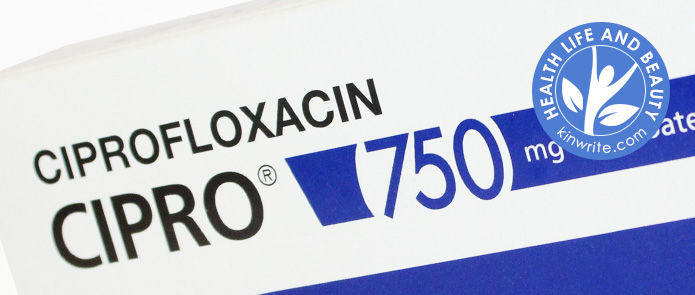Traveller’s Diarrhoea and Antibiotics
Traveller’s diarrhoea and antibiotics, the relation and the issue, both are very controversial. There are several international travellers that support the idea of taking some antibiotics like Cipro or others to spare themselves from traveller’s diarrhoea. But, is antibiotic an apt option to be considered for traveller’s diarrhoea? Is there any risk associated with the intake of antibiotics? What are the other options that any traveller has?

Traveller’s diarrhoea can occur abruptly. It is quite dreadful and can ruin your whole travelling experience. Traveller’s diarrhoea has the potential to keep you inside the toilet of your hotel room. Traveller’s diarrhoea occurs on the ingestion of bacteria. When a traveller ingests bacteria or may be a virus (less likely), he develops traveller’s diarrhoea. The bacteria gain the entry inside the body via contaminated food or water. It can also get inside the body of a traveller via hand to mouth contact. More than half of the travellers are susceptible of developing traveller’s diarrhoea.
This unfortunate event has the potential to destroy all the travelling plans of the travellers. Thus, it gets very important to control this disorder as soon as possible. The best way to gain relief in this situation is by taking Imodium and Pepto Bismol. Imodium as well as Pepto Bismol causes an instant relief in this dreadful condition.
Many physicians are of the opinion that travellers should swear by antibiotics because a single dose of antibiotics can control the condition at a great extent. This is the best strategy for the travellers who have a planned a short trip for themselves. But, if the situation gets worse like occurrence of blood in stools or if the traveller has fever, he must consult the doctor as soon as possible as this might not be just the case of traveller’s diarrhoea.
Why every traveller should not depend on Cipro? It is a well known fact that taking too much of antibiotics is loaded with severe side- effects. It not just cost pennies but, also if antibiotics are taken in abundance, the germs become immune to the antibiotics. They breed resistant germs. So, if Cipro is taken in case of traveller’s diarrhoea, the new breed of germs might cause diarrhoea that could be very difficult to treat. Not only this, the use of antibiotics can also cause colon infection known as C. difficile colitis. This is a severe and permanent condition and is life- changing. The life of the patient becomes miserable only after taking 1 or 2 antibiotic pills.
Many international travellers adopt various strategies in order to prevent traveller’s diarrhoea. Thus, it is very important for any traveller to know everything about traveller’s diarrhoea. A traveller must keep all the precautions and must meet his doctor before setting off for the journey. A traveller must always be very cautious and also be prepared. He must carry Imodium and other antibiotics with him just in case he needs them. He should pay attention to everything mentioned in this article to make his travel experience a worthwhile experience.
--------------------------------------------------------------------------------------------Related Posts:
Abstract/Summary Cimetidine reduces the clearance of pefloxacin from the body, ranitidine reduces the absorption of enoxacin but neither cimetidine nor ranitidine appear to interact with cipro. Clinical evidence, mechanism, importance and management Neither cimetidine nor ranitidine affect the pharmacokrnetics of cipro12-5 but a study of the concurrent use of cimetidine and pefloxacin showed that the AUC was increased
Full Post: Quinolone antibiotics and Cimetidine
--------------------------------------------------------------------------------------------
CHICAGO (Reuters) - Three naturally occurring antibacterial compounds hold promise for a new class of antibiotics, offering hope for fresh weapons against infection at a time when older drugs are losing their punch, researchers said on Thursday. The new agents, reported in the journal Cell, may even provide a quicker cure for tuberculosis, which could help
Full Post: U.S. study points to strong new class of antibiotics
--------------------------------------------------------------------------------------------
By Will Dunham WASHINGTON (Reuters) - Use of antibiotics at U.S. hospitals is rising despite concerns about fueling bacterial resistance, with Wyeth’s Zosyn and the older drug vancomycin driving the trend, researchers said. Use of antibiotics at a group of U.S. academic medical centers rose 7 percent from 2002 to 2006, Ronald Polk of Virginia Commonwealth University
Full Post: Hospitals use more antibiotics despite concerns
--------------------------------------------------------------------------------------------
CHICAGO (Reuters) - Bleach has been killing germs for more than 200 years but U.S. scientists have just figured out how the cleaner does its dirty work. It seems that hypochlorous acid, the active ingredient in bleach, attacks proteins in bacteria, causing them to clump up much like an egg that has been boiled, a team
Full Post: Mystery solved: How bleach kills germs
--------------------------------------------------------------------------------------------
LONDON (Reuters) - Giving antibiotics to patients in intensive care units as a precaution saves lives, according to a major Dutch study published Wednesday. The findings in the New England Journal of Medicine suggest the benefits of administering antibiotics right away, even before an infection develops, outweigh the risks people will develop resistance to them, the
Full Post: Antiobitics before infections save lives: study